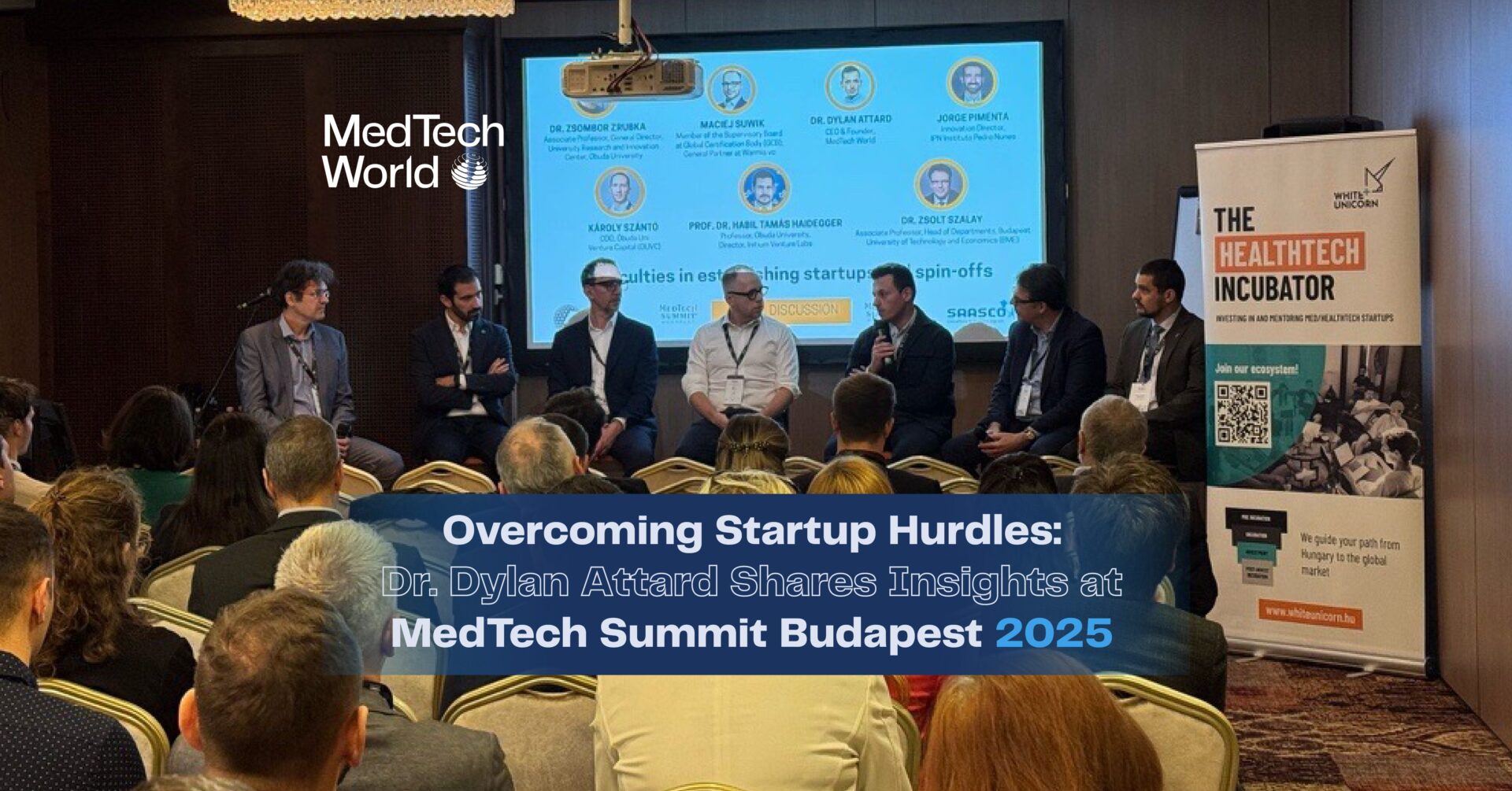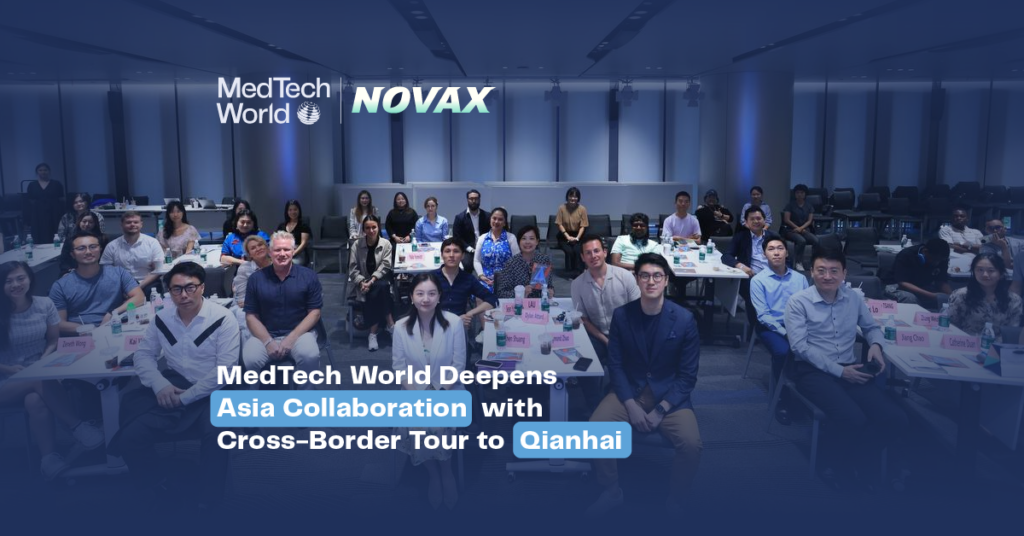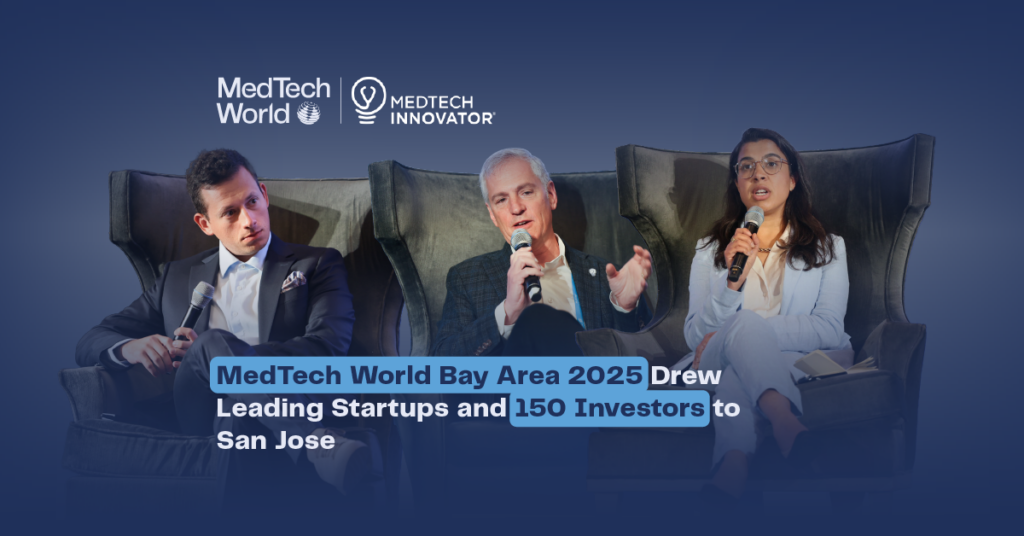
Wara Samar
3rd March 2025
Overcoming Startup Hurdles: Dr. Dylan Attard Shares Insights at MedTech Summit Budapest 2025
During the MedTech Summit Budapest 2025, Dr. Dylan Attard, CEO at MedTech World, spoke on the panel ‘Difficulties in Establishing Startups and Spin-Offs,’ where he shared insights into the varied roles universities play in startup ecosystems across different regions. In the US, universities like MIT, Stanford, and Harvard act as powerhouses of innovation, supported by technology transfer offices (TTOs), venture capital networks, and incubators. The Bayh-Dole Act further strengthens this ecosystem by allowing universities to own and license patents.
In Europe, while commercialization efforts have improved, universities often face bureaucratic hurdles, slower technology transfer processes, and a dependence on public grants. Some countries, such as the UK, Germany, and the Netherlands, demonstrate strong university spinout cultures, but a lack of aggressive venture capital and entrepreneurship training remains a challenge.
Other regions show mixed progress. China and Singapore, for instance, invest heavily in R&D, with China leaning on government-backed incubators and Singapore fostering public-private partnerships. In the Middle East and Africa, universities are increasingly engaged in innovation, yet regulatory and funding challenges limit growth. Meanwhile, Latin America struggles with bureaucratic obstacles, limited risk capital, and weak intellectual property frameworks, making commercialization more difficult.
Enablers and Barriers in University Innovation
Dr. Attard emphasized that strong TTOs, robust funding channels, and a nurturing entrepreneurial culture are crucial enablers for university startups. Collaboration with industries, hospitals, and government agencies also plays a pivotal role. However, barriers such as bureaucracy, risk aversion, limited entrepreneurial training, and insufficient access to seed funding often hinder progress.
University startups have distinct strengths, including deep-tech innovation, research talent, and access to grants. However, they face limitations in commercialization speed, market knowledge, and potential equity and IP challenges. While academic entrepreneurs bring scientific expertise and credibility, they may lack business acumen and struggle with the rapid execution required for commercial success.
Learning from Successes and Failures
Dr. Attard highlighted valuable lessons from past successes and failures. Companies like Google, Moderna, and Oxford Nanopore succeeded by securing strong commercial partnerships, industry collaboration, and maintaining a clear commercialization pathway. On the flip side, the downfall of ventures like Theranos and the prolonged commercialization struggles of D-Wave underscore the risks of overpromising technology and the challenges of navigating long development timelines.
Path Forward for University Startups
To enhance the success of university startups, Dr. Attard advocated for streamlining IP processes, reducing bureaucracy, and strengthening entrepreneurial training. He emphasized the importance of promoting risk-taking among researchers and increasing collaboration with industry and venture capitalists. By adopting a market-driven approach and a global mindset, universities can better translate research-driven innovation into commercial success.
To improve the success rate of university startups and spin-offs, Dr. Attard stressed the need for universities to streamline intellectual property processes and reduce bureaucracy. He advocated for stronger entrepreneurial training to equip academic founders with the necessary business and leadership skills. Encouraging risk-taking through clearer incentives for researchers, fostering industry collaborations, and increasing venture capital involvement were also highlighted as crucial strategies.
Dr. Attard concluded by emphasizing the importance of adopting a global mindset and promoting market-driven innovation. By shifting focus from purely research-driven development, universities can play a more active role in turning groundbreaking research into impactful businesses that thrive in the real world.
MedTech World is Heading to Houston
Get ready to join an exclusive gathering of innovators, thought leaders, and industry pioneers as MedTech World touches down in Houston on March 13, 2025! This is your chance to connect with top-tier experts, explore innovations, and be part of powerful discussions.
With only 300 seats available, this intimate event promises valuable networking opportunities and insights you won’t find anywhere else. Don’t miss out—secure your spot today before it’s too late!





